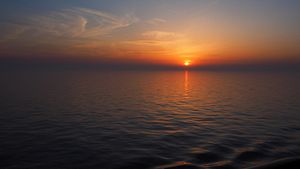Former Philippine President Fidel V. Ramos is back home in the Philippines after what may have been the most closely watched and consequential “Track II” dialogue in East Asia in some time. Ramos, in a personal and informal capacity, met with Fu Ying, a former Chinese envoy to the Philippines, and Wu Shicun, the president of China’s National Institute for South China Sea Studies, in Hong Kong.
Of course, while both the Philippines and China sought to clarify that for reasons of diplomatic protocol these talks would be considered strictly informal, Ramos and his Chinese interlocutors had the nods of their respective governments. In fact, Ramos had been dispatched to China on the personal request of Rodrigo Duterte, intending to communicate with his Chinese “old friends.”
As my colleague Shannon Tiezzi discussed last week , the backdrop to the Ramos-in-China episode was the outcome of the July 12 award issued by a tribunal at the Permanent Court of Arbitration on the nature of Chinese and Philippines maritime entitlements. The strong and overwhelming outcome in favor of the Philippines’ 2013 submissions to the tribunal have led to an unexpected period of seeming detente in the South China Sea. While Chinese ships continue to patrol disputed waters (such as Scarborough Shoal), Beijing has taken few steps to actively aggravate the status quo.
The “Ramos experiment” is an attempt by Philippine President Rodrigo Duterte to see if the bilateral relationship with China can be managed and recovered in the aftermath of the award. Duterte, above all, wants to avoid a deterioration of circumstances for Philippines mariners in disputed waters. Despite the careful attempts at rapprochement, the new Philippine president’s approach is not without its dangers.
For now, Duterte’s gambit by dispatching the former president seems to still have some steam left. At the conclusion of his trip, Ramos invited China for “formal discussions.” An August 12 press statement issued after the Track II talks outlines possible areas for cooperation between the two countries. Specifically, the statement lists the following seven proposals:
- encouraging marine preservation;
- avoiding tension and promoting fishing cooperation;
- anti-drug and anti-smuggling cooperation;
- anti-crime and anti-corruption cooperation;
- improving tourism opportunities;
- encouraging trade and investment facilitation;
- encouraging track II (think tank) exchanges on relevant issues of mutual concern and interest.
The above list is notable for not including the joint development or exploitation of resources by the two countries in disputed waters, including over fishing at Scarborough Shoal or hydrocarbon exploration at Reed Bank. As I wrote in the aftermath of the July 12 ruling, Duterte, for both constitutional and public opinion reasons, would not be able to offer up maritime space that the tribunal had clarified as belonging to the Philippines in any bilateral bargain with China.
The road map laid out by the Ramos-Fu-Wu statement is, therefore, generally quite modest. It’s possible that should a more formal iteration of these talks take place going forward that Manila may find itself gaining little without dangling a more attractive carrot (no doubt, involving Scarborough Shoal or Reed Bank). By doing so, however, the Philippines would cede the upper hand granted by the powerful July 12 award.
The Ramos-Fu-Wu statement does hit on an important point, however; it stresses that “building trust is very important to the long-term beneficial relationship between the Philippines and China.” Trust between the two countries is certainly lacking and the success of Ramos’ trip may at least help alleviate that in the near term.

































